Michael Gambon: The arresting and unlikely leading man who almost played Bond
From Dennis Potter to Harry Potter, the late actor brought a feral intensity and melancholic quality to his remarkable range of roles. He was even sounded out to play 007, though quickly scoffed at the notion, telling producer Cubby Broccoli, ‘I’ve got no hair, a double chin, and a fat gut’. Geoffrey Macnab pays tribute to the ‘consummate screen scene-stealer’
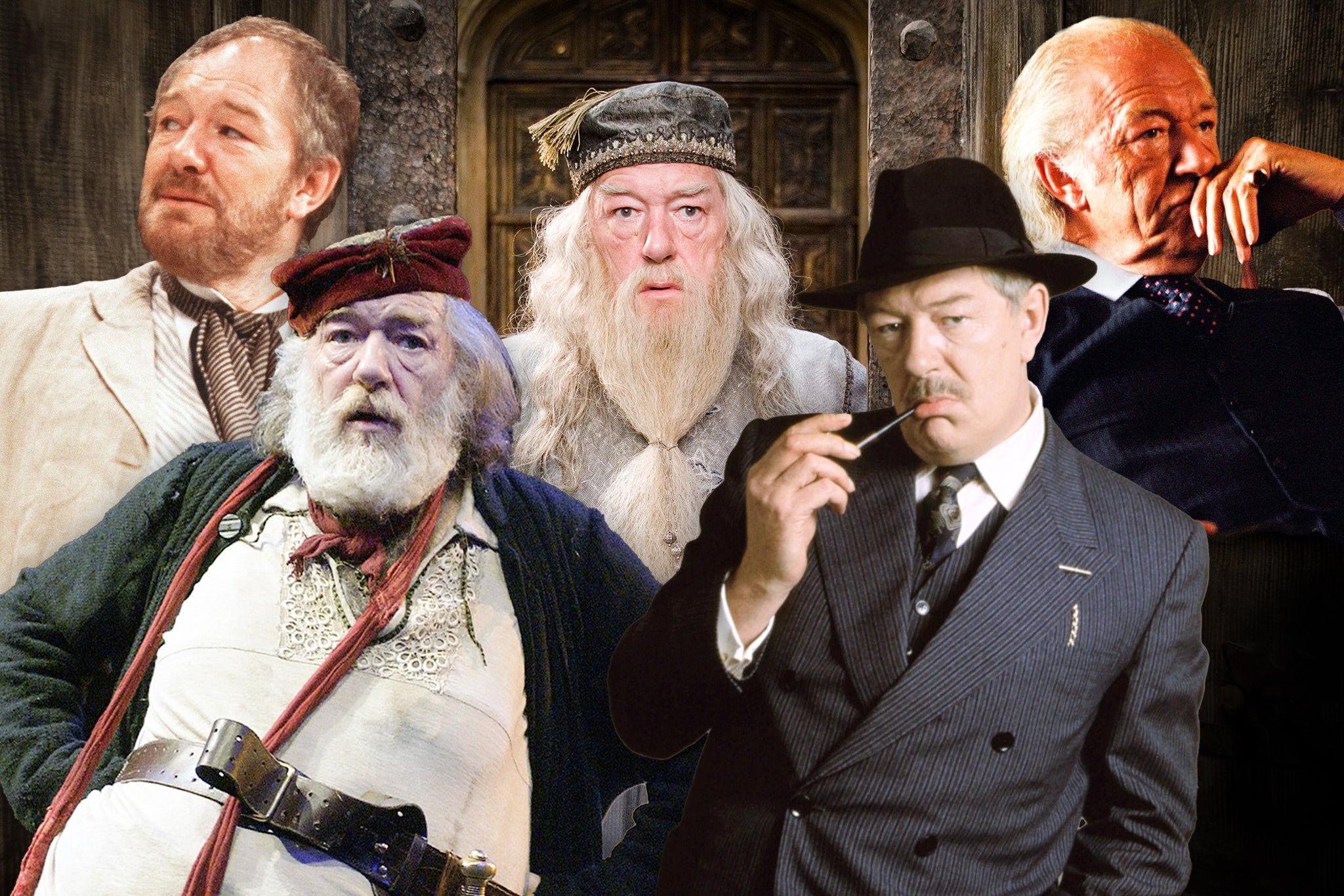
With his jowly appearance and sardonic delivery, Michael Gambon wasn’t an obvious leading man. But thanks to his role as the bed-bound, psoriasis-scarred mystery writer in Dennis Potter’s TV BBC drama The Singing Detective in the late 1980s, the Irish-born character actor became a household name in the UK. It was a remarkable performance, combining sarcasm, tenderness and erotic longing.
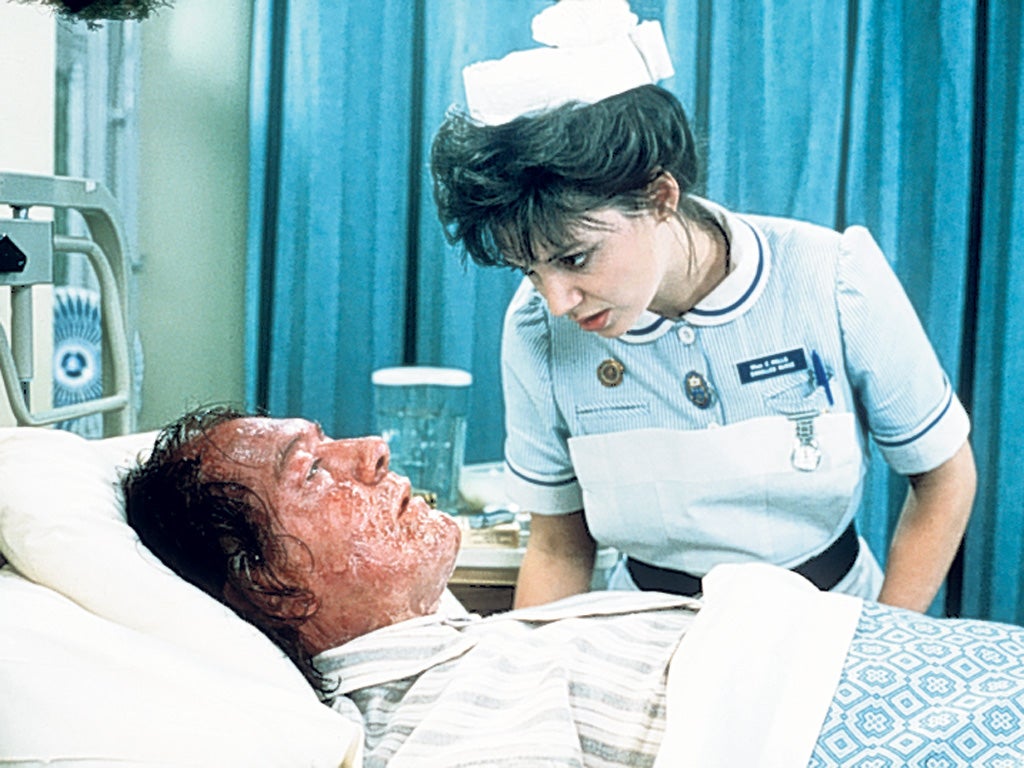
His fame grew yet further when he replaced the late Richard Harris as Albus Dumbledore in the Harry Potter films, which were huge global hits. Years before, he had briefly been in the frame to take over from George Lazenby as James Bond. With Gambon drinking the martinis, the franchise would surely have evolved in a very different direction than it did with Roger Moore. He would have made a far darker, more mercurial Bond, for a start. But when producer Cubby Broccoli sounded him out about playing 007, he was quick to pour cold water on the notion. “I’ve got no hair. I’ve got a double chin, a fat gut and I don’t look like him [Bond] at all,” he warned the producer.
Instead, over the next 40 years, Gambon – who has died at the age of 82 – popped up in character roles in dozens of independent films with directors such as Peter Greenaway and Robert Altman. He wasn’t especially discriminating about which parts he took. “I never turn down a role. I always take it,” he claimed. Inevitably, that meant he appeared in the occasional flop. He was so good and so reliable, though, that he tended to be offered eye-catching parts.
As his movie career stuttered along, Gambon was winning awards for his stage performances in classical and contemporary plays. He was a near perfect Uncle Vanya in a late 1980s stage production of the Chekhov play in which he starred alongside Jonathan Pryce and Greta Scacchi. Nobody could do world-weariness and yearning quite like him. He excelled in bleak Samuel Beckett and Harold Pinter dramas, but could tackle the most daunting Shakespearean plays like King Lear and Othello, too. Laurence Olivier was his mentor. He cited Galileo in the 1980 National Theatre production of Bertolt Brecht’s The Life of Galileo as his favourite among his roles. “It was the hardest part I’ve ever played… the most important thing in my life really.”
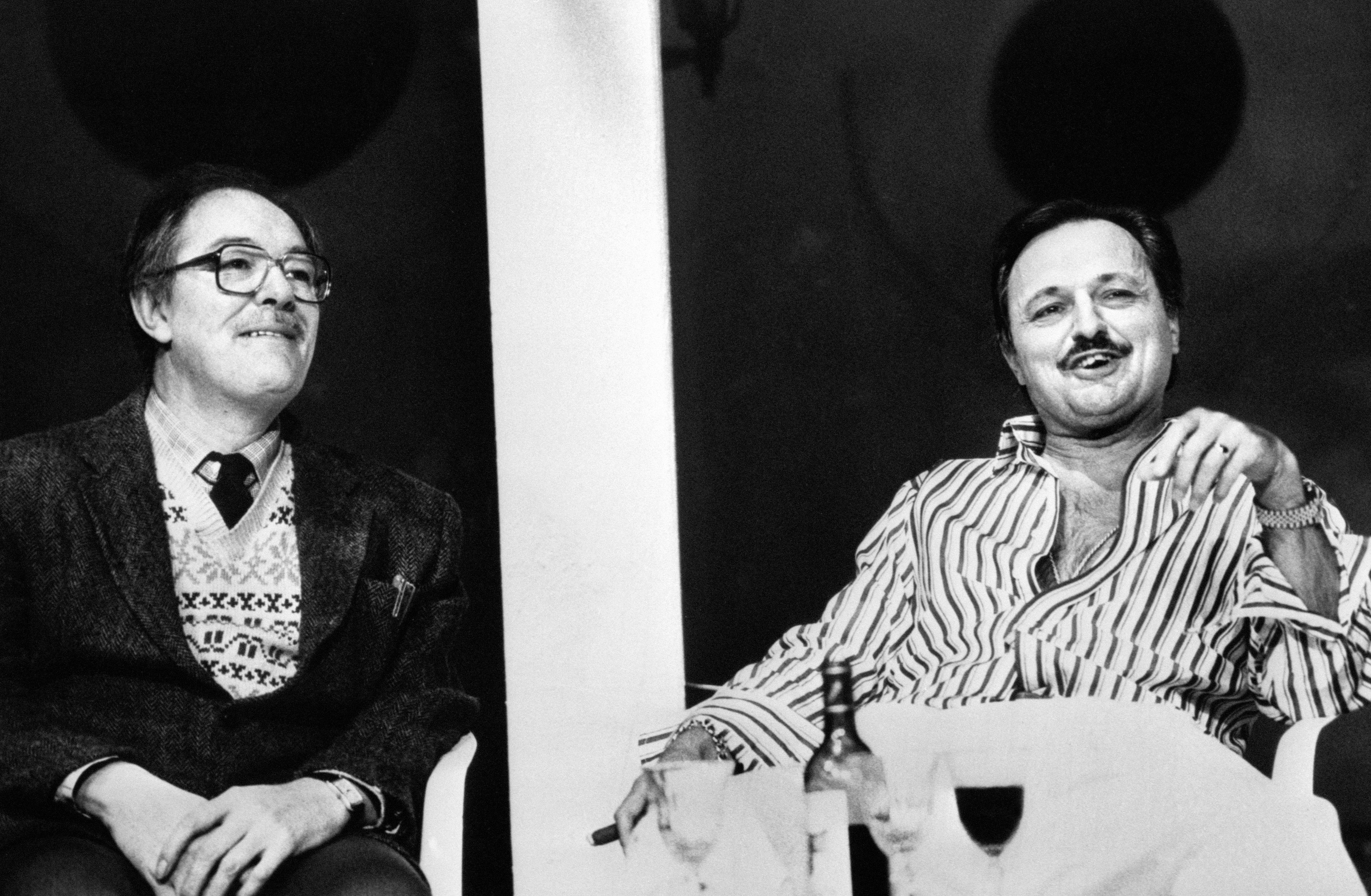
Sometimes on screen, Gambon was malevolence incarnate. It’s hard to think of many characters more unpleasant than the wealthy industrialist he played in Altman’s Gosford Park (2001), a sneering, callous bully who uses his money to intimidate those around him. He could be regal, for instance as the very haughty King George V, overawing his stammering son Bertie in The King’s Speech (2010). At the same time, he had a flair for whimsy and comedy. He was from a working-class background and yet was frequently cast as aristocrats, for example as the roué Lord Marchmain in the 2008 version of Brideshead Revisited or as the Anglo-Irish landowner Sir Richard Naylor in Deborah Warner’s The Last September (1998).
Gambon knew just when to pause for maximum dramatic effect, and how to use subtle physical gestures to ensure an audience’s eyes were on him and not anyone else
Nonetheless, one of his most celebrated stage performances was as Eddie Carbone, the rugged, physically imposing Italian-American longshoreman who has unholy desires for his orphan niece, in the National Theatre’s 1987 production of Arthur Miller’s A View from the Bridge. This was Gambon in Brando mode, a gritty, method-style piece of acting.
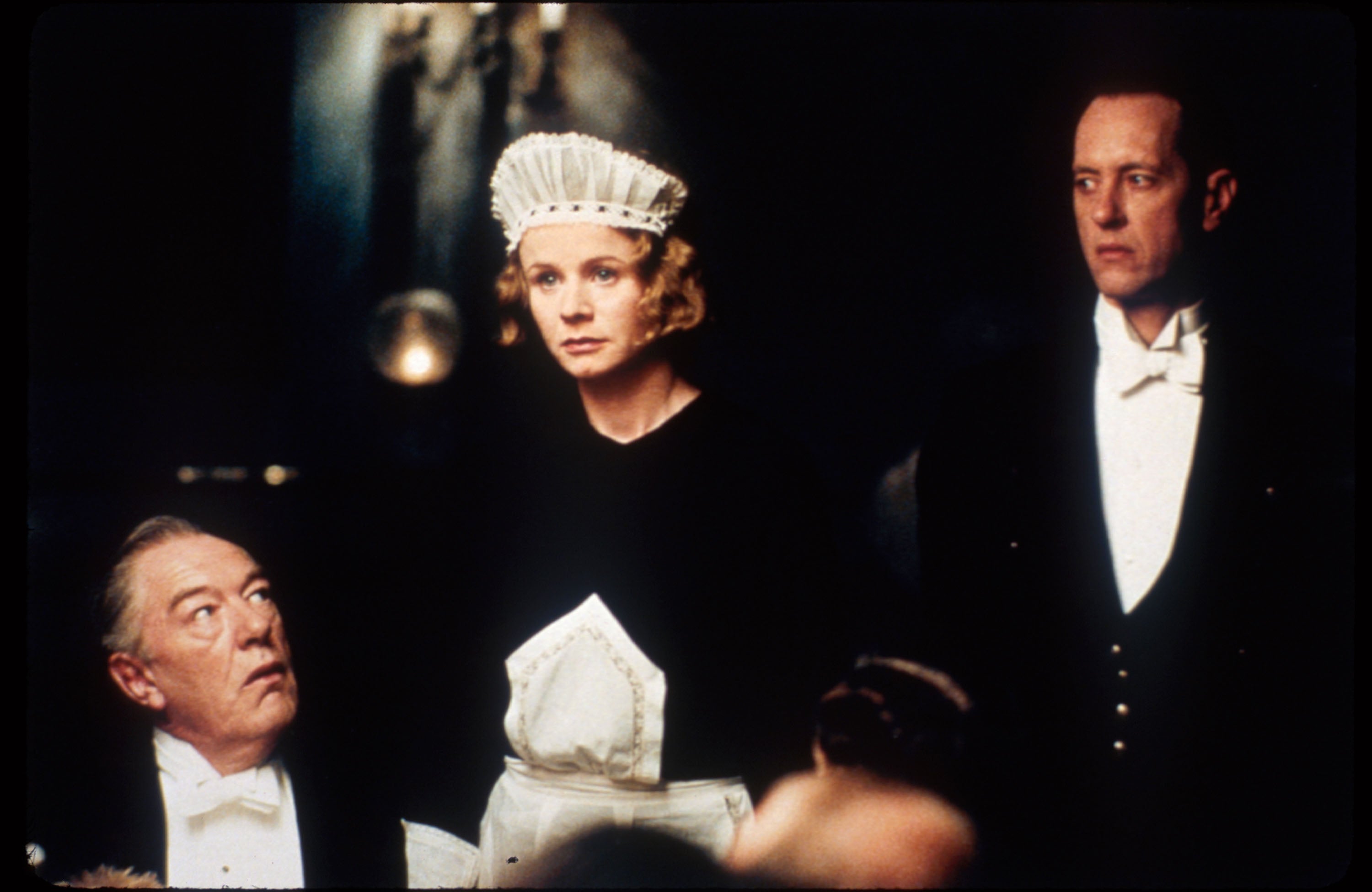
Like his female contemporaries Judi Dench and Maggie Smith, Gambon was one of those blue-chip British stage actors who became hugely in demand on screen in the latter part of their career. His versatility was remarkable. Look through his filmography and what leaps out is the sheer variety of roles he played. He worked several times with Michael Caine, in everything from Harry Palmer spy yarns such as 1996’s Midnight in Saint Petersburg – in which he played a chess-playing Russian oligarch/Bond villain type – to Conor McPherson’s whimsical Irish-set comedy The Actors (2003). He did Westerns. You can see him as the villainous rancher opposite cowboys Kevin Costner and Robert Duvall in Open Range (2003). He also tried his hand at horror, for example in Stephen Frears’s gothic yarn Mary Reilly (1996).
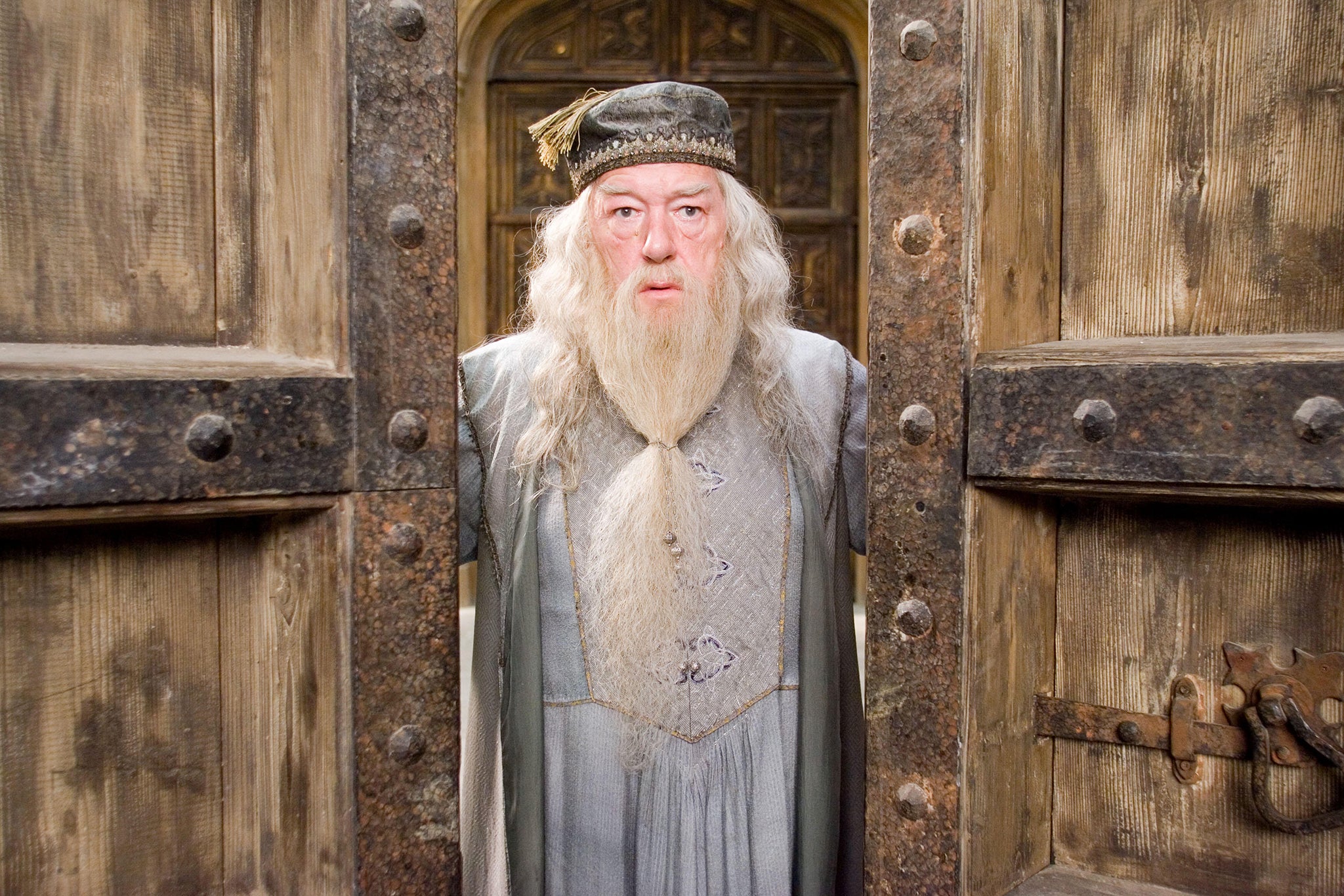
Gambon was a consummate scene-stealer. He knew just when to pause for maximum dramatic effect, and how to use subtle physical gestures to ensure an audience’s eyes were on him and not anyone else. He could read verse beautifully, but when necessary he would growl his lines with a feral intensity. Even his Dumbledore in Harry Potter had a bit of a harsh edge. When JK Rowling told him that she had decided the character was gay, he started camping it up on set, to the consternation of the filmmakers. At the same time, he brought a volatile and melancholy quality to many of his roles. He also had an immediately recognisable voice. Regardless of the hair, make-up or accent, you always knew it was him.
One of the disappointments about Gambon’s movie career is that he was so rarely given leading roles. He was a titan of the stage, but tended to appear in supporting parts on screen. It would be a mistake, though, to regard him as one of British cinema’s lovable, eccentric character actors. He wasn’t ever cuddly. He may have co-starred as Private Godfrey in the 2016 big-screen version of Dad’s Army, but that was an incongruous role for him. There was a darkness and sometimes a morose quality to his best performances. Whether as Uncle Vanya or as the ailing writer who dreams of himself as a Humphrey Bogart-like figure, his most memorable characters had both drive and a deep sense of longing.



Join our commenting forum
Join thought-provoking conversations, follow other Independent readers and see their replies
Comments